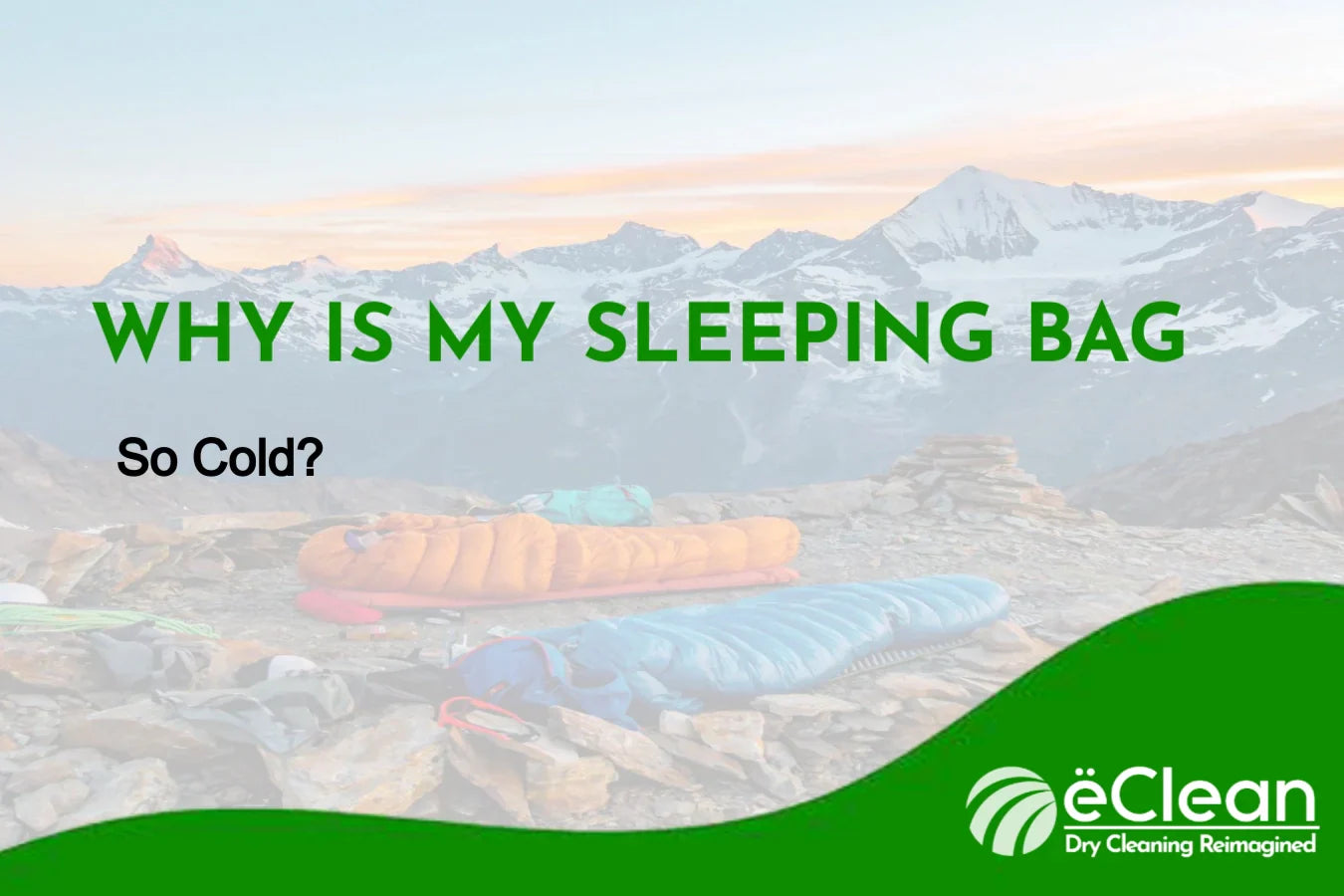Your Cart is Empty

As we near the end of the camping season, it is important to remember that tents should be cleaned before being packed away for the winter. Cleaning your tent is an essential part of maintaining its longevity and performance. However, improper cleaning techniques can actually do more harm than good. In this blog post, we will highlight the common mistakes to avoid when cleaning your tent to ensure it stays in top shape for your next outdoor adventure.

Tempting as it may be to toss your tent into the washing machine for a quick and easy clean, it is a big no-no. Washing machines can damage the delicate fabrics and waterproof coatings of your tent, compromising its integrity. If you wish to wash at home, opt for gentle hand-cleaning methods. For more complex cleaning jobs, consider using a tent cleaning service.
Using regular laundry detergents or harsh cleaning agents can strip away the waterproof coatings of your tent, leaving it susceptible to water leakage. Avoid any detergent containing bleach, fabric softeners, or fragrances. Instead, use a specialized tent cleaner or mild soap specifically formulated for outdoor gear. Keep in mind that there are different tent cleaners for different kinds of tents. For example, you wouldn’t want to use a canvas tent cleaner on a synthetic tent.
Scrubbing your tent vigorously with abrasive brushes or sponges can weaken the fabric, causing tears or abrasions. Instead, use a soft sponge or cloth and apply gentle pressure when cleaning. Focus on areas with visible dirt or stains while being mindful of the tent's overall structure.

Ignoring stains on your tent can lead to permanent discoloration or mold growth. Promptly treat any stains or spills with a gentle tent cleaning solution and mild agitation. Remember to rinse thoroughly and air dry your tent before storing it to prevent any mold or mildew buildup.
Storing a wet tent without proper drying can result in a damp, musty odor, and potential mold growth. Always ensure your tent is completely dry before packing it away. Hang it in a well-ventilated area or use a towel to absorb excess moisture. Avoid direct sunlight, as it may cause UV damage to the fabric.
Zippers play a crucial role in tent functionality, and neglecting their care can lead to frustrating zipper jams or breakage. Clean the zipper teeth with a soft brush or toothbrush to remove any debris. Lubricate the zippers with a silicone-based zipper lubricant for smooth operation.

When it comes to cleaning your tent, you want a method that is not only effective but also safe for the delicate fabrics and coatings. That's where eClean CO2 Dry Cleaning comes in. Our eco-friendly and innovative dry cleaning process offers superior tent cleaning solutions ensuring they remain in top condition for your next outdoor adventure.
Traditional wet cleaning methods can be harsh on tent fabrics and compromise their waterproofing capabilities. However, eClean CO2 Dry Cleaning uses liquid CO2 as a solvent instead of water. This unique cleaning method effectively removes dirt, stains, and odors from your tent without the need for water, ensuring minimal damage and maximum longevity for your gear.
Tent fabrics are engineered with specific treatments and coatings to provide water resistance and durability. Using harsh chemicals or abrasive techniques can strip away these protective layers, reducing the lifespan of your tent. With eClean CO2 Dry Cleaning, we use a gentle cleaning process that respects the integrity of the fabrics and safeguards the waterproof coatings, preventing any compromise in performance.
Many tents are made from specialized fabrics such as nylon or polyester blends, each with its own cleaning requirements. Our eClean CO2 Dry Cleaning process is designed to safely clean a wide range of tent fabrics, including those that are difficult to handle or sensitive to water. Whether you have a lightweight backpacking tent or a heavy-duty mountaineering tent, you can trust eClean to handle it with care.
Tents often face tough stains from mud, food spills, or even bird droppings. These stains can be challenging to remove without causing further damage. Our specialized CO2 dry cleaning process effectively lifts and removes these stubborn stains, leaving your tent looking fresh and ready for your next outdoor adventure.
After a camping trip, your tent may develop unpleasant odors due to accumulated sweat, mildew, or other outdoor smells. eClean CO2 Dry Cleaning not only removes visible dirt and stains but also eliminates odors, leaving your tent smelling clean and fresh.
At eClean, we are committed to environmental sustainability. Our CO2 dry cleaning process uses non-toxic and biodegradable solvents, reducing our carbon footprint while delivering excellent cleaning results. By choosing eClean CO2 Dry Cleaning for your tent, you are not only taking care of your gear but also contributing to a healthier planet.
Properly cleaning your tent is essential for its longevity and performance. By avoiding these common mistakes, you can ensure that your tent remains in excellent condition for many outdoor adventures to come. Remember to follow the manufacturer's instructions and invest in specialized tent care products and/or services to maintain its waterproof capabilities. Happy camping!

Has your trusty sleeping bag started to get a little too cold for mountain & winter use, or are you just noticing that it's not feeling the same as it did when it was new? It's a frustrating experience that can leave you longing for a good night's sleep.
In this article, we dive into the reasons behind insulation loss in sleeping bags, specifically focusing on down-filled ones. We'll explore the science behind the properties of down, the impact of washing machines, and common causes for reduced insulation.